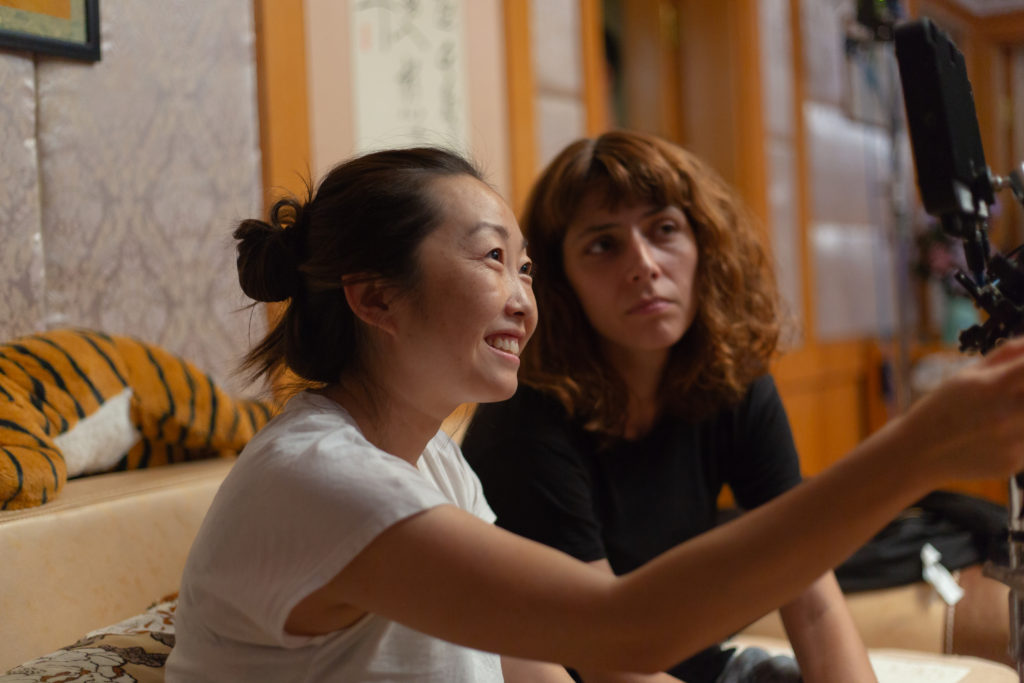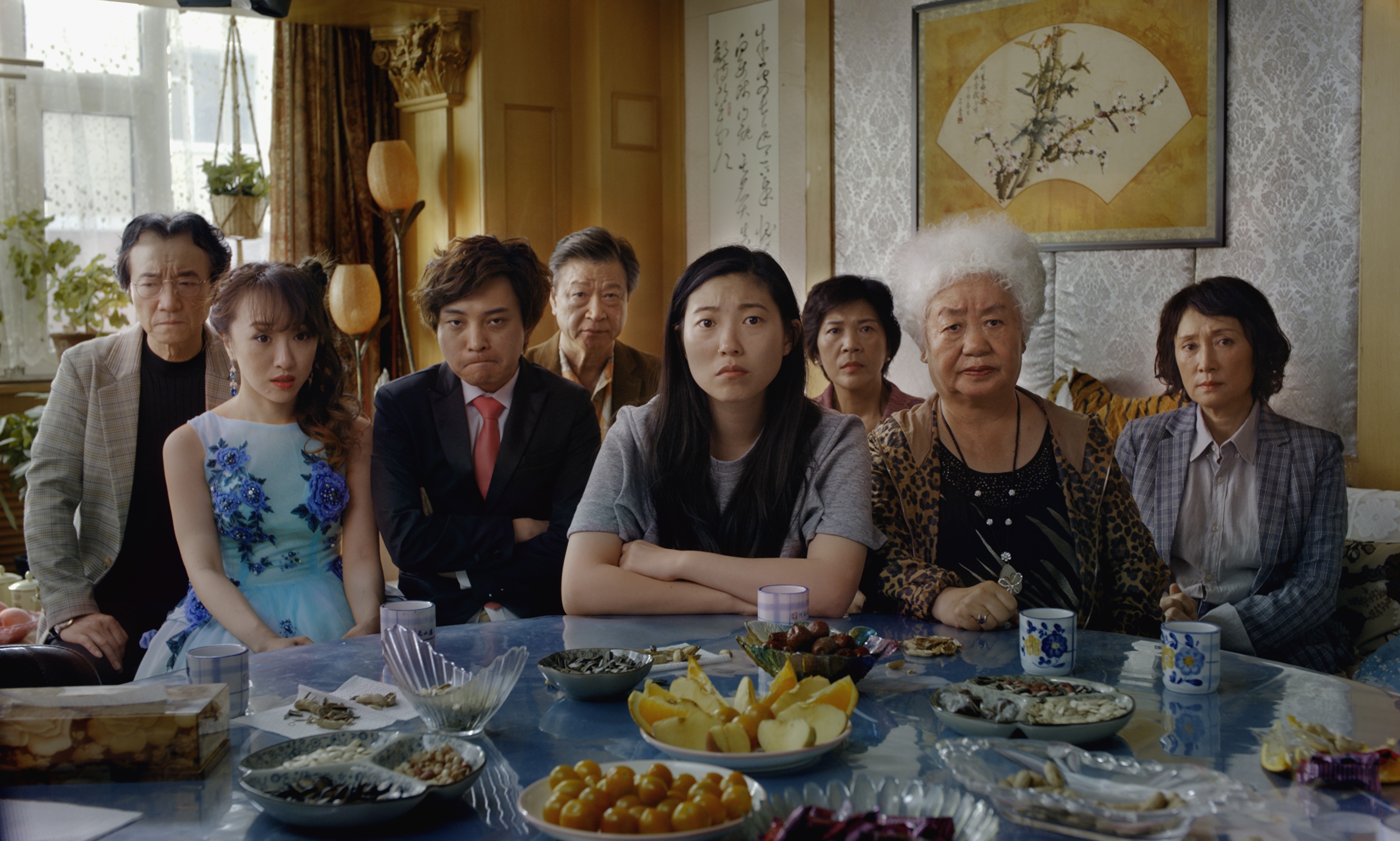Writer-director Lulu Wang’s new film, “The Farewell,” began as a 2016 episode of “This American Life.” Wang wrote and narrated the segment “What You Don’t Know,” the story of her grandmother, Nai Nai. It recounted Wang’s family’s decision not to tell Nai Nai about her Stage 4 lung cancer diagnosis — as well as their gathering in China for Nai Nai’s final days.
“The Farewell” made its debut at Sundance earlier this year, and went on to win the Audience Favourite prize at Sundance Film Festival: London. It marks “Crazy Rich Asians” breakout Awkwafina’s first leading role.
This is a big moment for Wang. She shopped the film around for a long time before the radio show brought its story to life. “The Farewell” has also landed her Sundance Institute’s Vanguard Award and a place on Variety’s 2019 Directors to Watch list. Wang’s previous projects include 2014’s “Posthumous.” Next, she’s writing and directing “Children of the New World,” a sci-fi based on Alexander Weinstein’s short story collection.
Women and Hollywood talked to Wang about the creation and success of “The Farewell,” collaborating with Awkwafina, and how audiences are relating to her family’s story.
“The Farewell” hits theaters this Friday, July 12.
This interview has been edited.
W&H: “The Farewell” started with an episode of “This American Life,” which described your elaborate attempt to keep someone ignorant of the truth: your grandmother. Did that episode and experience help get this film made?
LW: I had started writing the film before doing that episode. The approach to “This American Life” was very investigative, which I really appreciated. I was able to interview my family and get a greater understanding of their story. When the story aired, it was like material that had been tested on an audience and proved itself to work. So, the producers who heard it resonated with it and wanted to make it into a film. It helped to get the movie financed and it also helped me choose the producer.
Before “This American Life” I was knocking down doors, trying to get people to say yes to making the film. After the story came out, producers were knocking on my door. It actually gave me the power to dictate my own terms. I was now interviewing producers, and I was saying I wouldn’t make this film unless [it was] under my conditions. The producer [Chris Weitz] who saw that same vision was the producer I would ultimately use. I don’t think I would have ever been in that position if it wasn’t for the radio story coming out.
W&H: Speaking of dictating your conditions, I read that you turned down a streaming channel offer for the A24 deal you ended up with. What was your rationale behind that decision?
LW: It was a really difficult decision — not because I was upset. It was a wonderful problem to have. Clearly, people were fighting for the film. It’s good to have choices. But how was I to convince my producers, who invested in this project, that I wanted to turn down that much more money for the sake of my value system? I was lucky they shared the same value system.
For me, the film had to be theatrical, and I wanted to go with A24 because I’d seen what they had done in terms of creating a platform for a film of this size. It’s such a small film. It needed a small rollout and it needed to be theatrical [in order to spark] a dialogue about the culture around the film — not just about the movie, but what it really means.
For this film, which is 80 percent in Mandarin subtitles and [has a] 100 percent Chinese-American cast, to be in U.S. competition is a political statement. It’s about what we consider to be American. I wanted to be sure we had that conversation, and that requires a very grassroots campaign for the film. How you bring something out into the world is as important as the thing itself. It’s like nature versus nurture. The nature of the child might be great but if you don’t take care of it in the way that you introduce it into the world, it can damage how it’s talked about. That’s why I made that decision. I don’t want to live in a world where it’s all about the biggest wallet.
W&H: How important is it for you to work with women, to write films about women, to cast women?
LW: It’s completely essential to my work because it’s my perspective. It’s not to say I don’t want to work with men, but I am naturally drawn to female collaborators. Even looking at DPs, I looked at the work of a lot of people. I was looking for something very specific. I was looking for a certain sensitivity, emotionality in the frame, a certain quality that can be summed up as both strength and softness, equal parts strength and vulnerability. I was looking for that in the work itself, I wasn’t looking at the names of the DPs or at the gender. Yet there was something about Anna [Franquesa Solano]’s work specifically because she is a female DP.
The way [women directors] communicate is very different from male directors that I’ve talked to. Their relationship with their crew is very different from my relationship with my female crew. I think I’ll continue to work with them and continue to tell their stories. So much of this film is about my family overall, but also the complicated relationships between the women specifically.
W&H: Was Awkwafina your first choice to play Billi, and how important is she to the film’s success?
LW: Awkwafina actually was my first choice, but not initially. When she was introduced, I was still auditioning and I hadn’t found somebody I felt who could play the role. Her name came up and I knew her musical work. I knew that she had done some comedy, but I didn’t know she could do dramatic acting. She sent in an audition tape after we met. That’s when I decided to cast her. She has all of this emotional depth she wasn’t leveraging in her other work. She usually gets cast as a comedic sidekick. I was really excited because I knew that beyond her name recognition and social media influence that she would be great for the role itself.
It was one of those magical moments where the producers were hoping she’d be great because her following could help draw audiences but they knew we were never going to cast her if she wasn’t right for the part. We all went into it with an open mind and were really happy when she turned out to be perfect.
W&H: The reviews of the film have been so positive. What has that response been like for you?
LW: It’s been really surreal and fantastic because I thought I was making a small, intimate story, sticking to all the details. It became an inside joke with the crew because we all came to love these characters and this world so much, in the way that I love my own family. But everyone has a special relationship with their family and their own friends. To suddenly have the world in on this inside joke and to love them as much as I have my whole life is surreal. It has become so much greater than me or my own family.
What’s so magical about it is when people watch the film and say, “Your Nai Nai is my grandma. Your family is my family.” Even people who aren’t Asian American will say that. That to me is really special because I’ve grown up my entire life watching families that don’t look like me and having to find myself represented in those characters. I know that it works, but it is unique when people see an Asian family and see themselves in that Asian family.








